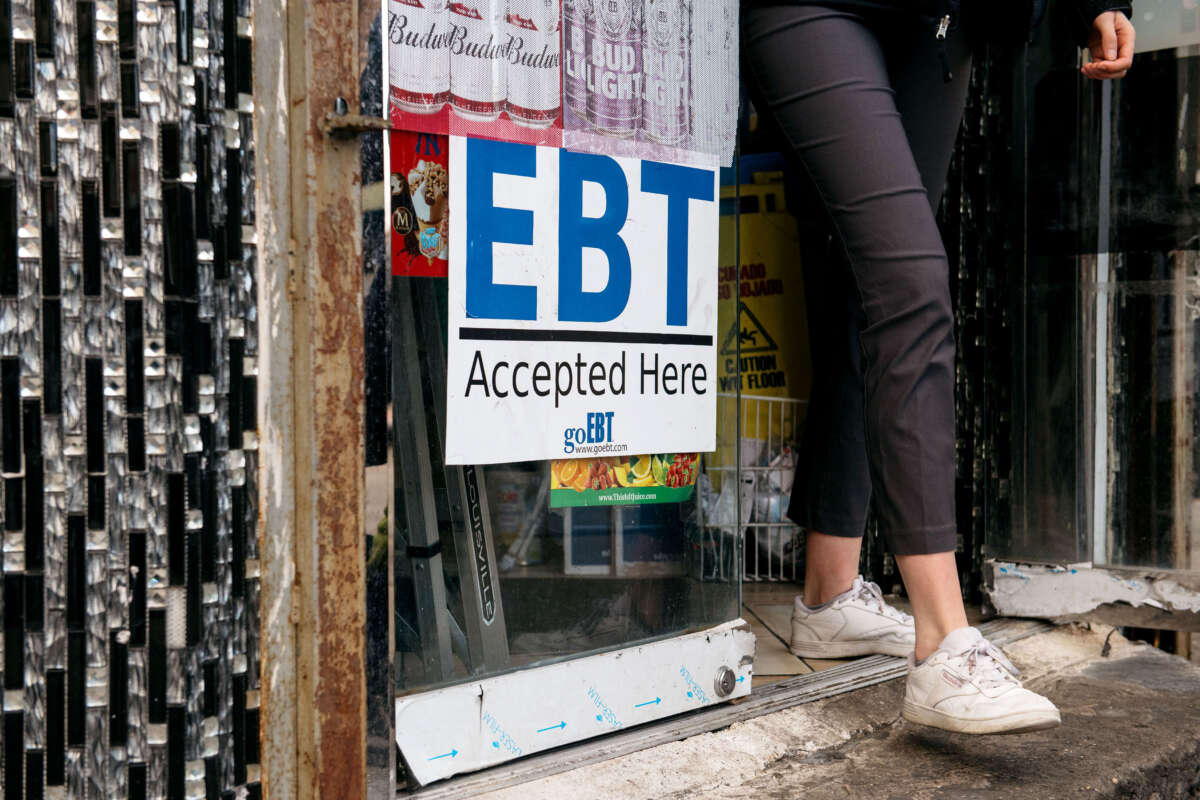Support justice-driven, accurate and transparent news — make a quick donation to Truthout today!
Thousands of expedited food stamp applications in New York City have gone unprocessed this year, leaving families in need without assistance and hungry during the holiday season.
The processing delay in Expedited Supplemental Nutrition Assistance Program (E-SNAP) applications puts the Adams administration in non-compliance of a 2005 court order requiring the city to provide E-SNAP within seven days to desperate applicants. Applicants who qualify for E-SNAP benefits include those who earn less than $150 in monthly gross income and have less than $100 in savings, and migrant or seasonal farm workers with less than $100 in liquid resources, among others. E-SNAP benefits provide hundreds of dollars per month for beneficiaries to purchase food.
“The City’s broad and systemic failure to adequately provide E-SNAP and cash assistance to eligible New Yorkers has left thousands of families in dire straits struggling to feed themselves and their children and meet their basic needs,” Emily Lundgren, Staff Attorney with The Legal Aid Society, said in a statement. “The consequences of food instability are far-reaching, impacting the health, emotional and mental well-being of individuals experiencing it.”
The city’s failure to process the E-SNAP applicants within the legally required timeframe has prompted the Legal Aid Society to file a motion to hold the Adams administration in contempt of the 2005 court order.
“No one eats retroactively, and food benefits granted late do not remedy past hunger,” Saima Akhtar, Senior Attorney at the National Center for Law and Economic Justice said in a statement. “Until the City takes corrective measures to resolve its E-SNAP delays, struggling families will continue to go hungry. Our legal action intends to bring the City into compliance.”
In March of this year, the city failed to process 160 of 200 E-SNAP applications within the seven-day period and, between April and June, the Adams administration failed to process another 6,340 E-SNAP applications.
“When it comes to accessing E-SNAP, SNAP, and cash assistance, delays are more than an inconvenience–they are a matter of whether a family can put food on the table or pay their rent,” Abby Biberman, Associate Director of the Public Benefits Unit at NYLAG, said in a statement. “The City’s failure to issue expedited SNAP benefits combined with the failure to process applications timely sends clients who are already in a dire situation into a state of emergency.”
The 2005 court order also requires the Human Resources Administration (HRA), which oversees the city’s E-SNAP program, to provide reports to Legal Aid on the timeliness rates for the E-SNAP program. Yet, for over three years, the agency has failed to provide the legally-required data.
“They have not demonstrated any willingness to come into compliance,” Lundgren told NY Daily News. “We are at our wits’ end. We have no other choice, I think, than to now go and say, ‘We need the court’s assistance to get HRA to comply with their obligation.’”
The delay in accessing E-SNAP benefits can have a detrimental impact on vulnerable New Yorkers.
“When it comes to accessing E-SNAP, SNAP, and cash assistance, delays are more than an inconvenience–they are a matter of whether a family can put food on the table or pay their rent,” Abby Biberman, Associate Director of the Public Benefits Unit at NYLAG, said in a statement. “The City’s failure to issue expedited SNAP benefits combined with the failure to process applications timely sends clients who are already in a dire situation into a state of emergency.”
One E-SNAP applicant, Laquena Watson, a single mom who had a newborn and a 13-year-old, told NY Daily News that it took two months for her to receive the needed benefits.
“Those two months were very stressful,” Watson said. “I wasn’t able to buy food, I wasn’t able to buy milk or formula. I had a newborn, and I didn’t have any income.”
Speaking against the authoritarian crackdown
In the midst of a nationwide attack on civil liberties, Truthout urgently needs your help.
Journalism is a critical tool in the fight against Trump and his extremist agenda. The right wing knows this — that’s why they’ve taken over many legacy media publications.
But we won’t let truth be replaced by propaganda. As the Trump administration works to silence dissent, please support nonprofit independent journalism. Truthout is almost entirely funded by individual giving, so a one-time or monthly donation goes a long way. Click below to sustain our work.
